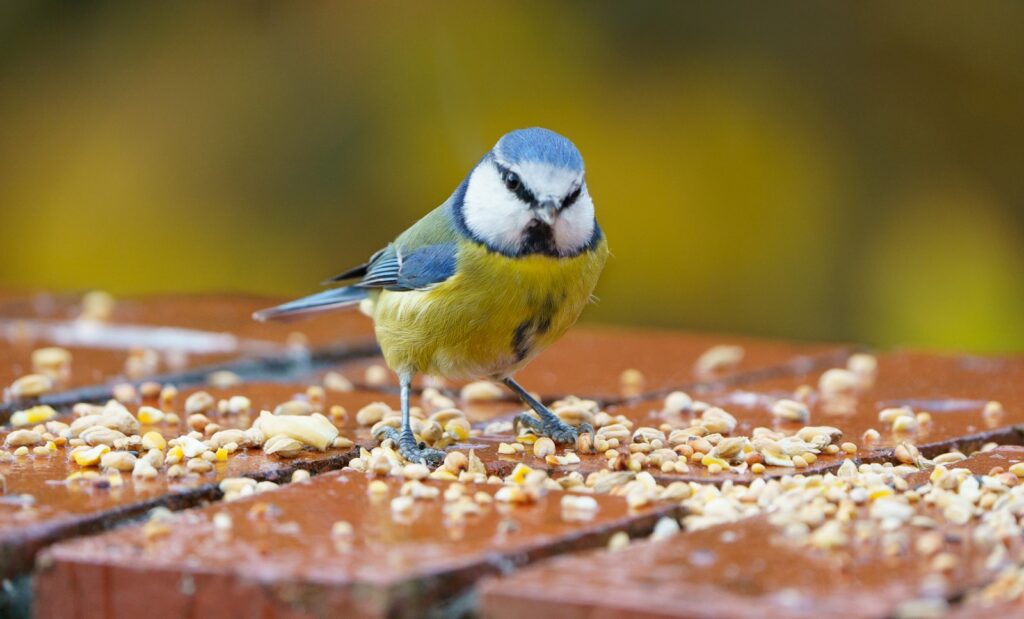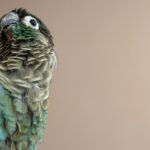Providing homemade food for your pet bird isn’t just a rewarding bonding experience; it can also ensure your feathered friend is getting the healthiest and freshest meals possible. When you prepare their food, you control the ingredients and avoid unhealthy additives found in commercial bird feed. Plus, it’s surprisingly easy and a lot of fun!
“A well-balanced, fresh diet can increase a bird’s lifespan and improve its overall well-being.”
Whether you’re a seasoned pet owner or new to the world of avian companionship, crafting meals for your bird can be an enriching journey. Let’s dive into the essentials you’ll need to get started on creating nutritious and delicious homemade bird food.
What are the essential nutrients for pet birds?
Pet birds require a balanced diet that includes a variety of essential nutrients to maintain their health and well-being. One of the most important components is protein, which is crucial for growth, repair, and overall body function. High-quality protein sources for birds include cooked eggs, legumes, and certain seeds like quinoa and chia. Vitamins play a vital role in a bird’s diet. Vitamin A is particularly important for maintaining healthy skin, feathers, and vision. It can be found in foods like carrots, sweet potatoes, and leafy greens. Vitamin D is essential for calcium absorption and bone health, and birds can obtain it through exposure to natural sunlight or through dietary supplements.
Fats are necessary for energy and the absorption of fat-soluble vitamins. Healthy fats can be provided through seeds such as flaxseed and sunflower seeds, as well as nuts like almonds and walnuts. However, it’s important to offer these in moderation to prevent obesity. Carbohydrates provide a primary source of energy for pet birds. Whole grains such as brown rice, oats, and barley are excellent sources of complex carbohydrates that offer sustained energy release. These grains also provide fiber, which aids in digestion and prevents gastrointestinal issues.
Water is often overlooked but is an essential nutrient for all living creatures, including pet birds. Fresh, clean water should always be available to ensure proper hydration, which is vital for all bodily functions, including digestion, temperature regulation, and waste elimination.
| Nutrient | Function | Sources |
|---|---|---|
| Protein | Builds muscles, feathers, and tissue | Beans, nuts, legumes |
| Carbohydrates | Provides energy | Grains, fruits, vegetables |
| Fats | Energy storage and cell structure | Seeds, nuts, avocados |
| Vitamins | Supports overall health and immune function | Fruits, vegetables, formulated pellets |
| Minerals | Maintains bone structure and cellular function | Leafy greens, mineral blocks, calcium supplements |
Which ingredients are safe for pet birds?
Fresh fruits are a great addition to a pet bird’s diet. Safe options include apples (without seeds), bananas, berries, melons, and oranges. These fruits provide essential vitamins and minerals that contribute to a bird’s overall health. Vegetables are another important component of a bird’s diet. Safe vegetables include carrots, sweet potatoes, bell peppers, broccoli, and leafy greens like spinach and kale. These vegetables offer a variety of nutrients and can be served raw or lightly steamed.
Whole grains such as brown rice, quinoa, and oats can be included in homemade bird food. These grains are rich in fiber and essential nutrients, providing a good source of energy for your pet bird. Legumes like lentils, chickpeas, and beans (cooked thoroughly) are also safe for birds. They are an excellent source of protein and can be mixed with other ingredients to create a balanced meal. Nuts and seeds can be given in moderation. Safe options include almonds, walnuts, sunflower seeds, and pumpkin seeds. These provide healthy fats and proteins but should be offered sparingly due to their high-fat content.
Herbs such as parsley, basil, and cilantro can be added to your bird’s food for extra flavor and nutritional benefits. These herbs are safe and can enhance the taste of homemade recipes. Eggs, particularly hard-boiled or scrambled (without seasoning), are a good source of protein and can be included in a bird’s diet. They should be offered occasionally and in small amounts.
What are some common homemade bird food recipes?
One bird popular homemade food recipe is a mix of cooked grains and vegetables. Birds like parrots and cockatiels enjoy a blend of quinoa, brown rice, and barley, combined with finely chopped vegetables such as carrots, peas, and bell peppers. This mixture provides a balanced diet rich in fiber, vitamins, and minerals. Another nutritious option is a fruit salad tailored for birds. Combine small pieces of bird-safe fruits like apples, bananas, blueberries, and mangoes. Adding a sprinkle of chia seeds or flaxseeds can enhance the nutritional value, providing essential fatty acids and antioxidants.
Birds also appreciate a homemade seed mix. Create a blend of sunflower seeds, millet, flaxseeds, and hemp seeds. This mix can be used as a treat or a supplement to their regular diet, offering a variety of textures and flavors that birds find appealing. For a protein-rich treat, consider making birdie bread. Use whole grain flour, eggs, and a small amount of baking powder as the base. Add finely grated vegetables like zucchini or sweet potato, and mix in some crushed nuts or seeds. Bake until firm and cut into small, bird-sized pieces.
Sprouted seeds are another excellent homemade food option. Soak seeds like mung beans, lentils, or alfalfa overnight, then rinse and drain them daily until they sprout. Sprouted seeds are highly nutritious and easier for birds to digest, providing a fresh and crunchy addition to their diet. Birdie bread is a delightful treat that can be made at home. Combine whole grain flour, cornmeal, eggs, and a variety of pureed vegetables like sweet potatoes, carrots, and spinach. Bake the mixture in a loaf pan and cut it into small pieces once cooled. This bread is a great way to sneak in extra nutrients and can be stored in the freezer for future use.
How do portion sizes vary for different bird species?
| Bird Species | Daily Pellet Amount | Daily Vegetable Amount |
|---|---|---|
| Budgerigar | 1-2 tsp | 1 tsp |
| Cockatiel | 2-3 tsp | 2 tsp |
| Conure | 2-4 tsp | 2-3 tsp |
| African Grey | 1/4 cup | 1/4 cup |
| Amazon Parrot | 1/4 cup | 1/4 cup |
| Macaw | 1/3 – 1/2 cup | 1/3 – 1/2 cup |
In addition to size, the activity level of the bird also plays a crucial role in determining portion sizes. Birds that are more active and have higher energy levels will need more food to sustain their activity. Conversely, birds that are less active or older may require smaller portions to prevent obesity and related health issues. It’s also important to consider the nutritional content of the food being offered. Birds have specific dietary requirements that include a balance of proteins, fats, carbohydrates, vitamins, and minerals. For example, a diet high in seeds might be appropriate in smaller portions for some species, but larger birds might need more fruits, vegetables, and pellets to meet their nutritional needs.
Can I make homemade bird treats as well?
Absolutely! Making homemade bird treats can be a delightful way for you to bond with your feathered friend. Plus, it allows you to control the ingredients and ensure your bird is getting a variety of nutrients. Let’s dive into some simple and healthy treat ideas you can whip up at home.
Fruit Kebabs: This is a fun and easy treat. Simply skewer pieces of bird-safe fruits like apple slices, cantaloupe chunks, and apricot pieces. Just be sure to remove any seeds or pits before serving.
Veggie Muffins: Whip up a batch of bird-friendly veggie muffins. Combine finely chopped vegetables like carrots, kale, and collard greens with some whole grain flour, a bit of egg substitute, and bake them into small muffin tins. Your bird will love pecking at these nutritious bites.
Peanut Butter Balls: Mix a small amount of low-fat cheese with a dab of peanut butter, and roll them into tiny balls. You can also incorporate some finely ground pellets for added nutrients. Remember to serve these sparingly due to the calorie content.
Egg Treats: Cooked eggs or egg substitutes can be turned into a delicious treat. Simply scramble an egg or egg substitute and once cooled, offer it to your bird. It’s an excellent protein boost!
Remember, treats should not exceed more than 10% of your bird’s daily diet. Variety is key to a balanced diet, so mix up the treats and introduce them slowly to ensure your bird enjoys them. Always wash fruits and veggies thoroughly to remove any residues.
With these homemade treat ideas, you’ll not only keep your pet happy and healthy but also entertained and enriched. Happy treat making!
How can homemade diets improve a bird’s health?
Homemade diets for pet birds allow for greater control over the quality and freshness of ingredients. This ensures that the bird receives nutrients from unprocessed, natural sources, which can be more beneficial than commercial bird food that may contain preservatives and artificial additives.
Homemade diets can help prevent obesity in pet birds. Many commercial bird foods are high in fats and sugars, which can lead to weight gain and associated health problems. By preparing meals at home, you can regulate portion sizes and ensure a balanced intake of nutrients, promoting a healthy weight. Feeding a bird a variety of fresh fruits, vegetables, grains, and proteins can enhance its overall health and well-being. A diverse diet can provide a wide range of vitamins, minerals, and antioxidants that support immune function, improve feather quality, and boost energy levels.
Homemade food can reduce the risk of dietary deficiencies. Commercial diets may not always provide a complete nutritional profile, especially if they are not specifically formulated for certain bird species. By carefully selecting and combining ingredients, you can ensure that your bird receives all essential nutrients. Preparing food at home allows for the inclusion of enrichment opportunities. Birds enjoy foraging and exploring different textures and flavors, which can be incorporated into homemade meals. This not only makes mealtime more engaging but also promotes mental stimulation and reduces boredom.
Homemade diets can help identify and eliminate potential allergens or irritants. Some birds may have sensitivities to certain ingredients commonly found in commercial foods. By preparing food at home, you can monitor and adjust the diet to avoid any adverse reactions, ensuring your bird’s comfort and health.Homemade diets can help identify and eliminate potential allergens or irritants. Some birds may have sensitivities to certain ingredients commonly found in commercial foods. By preparing food at home, you can monitor and adjust the diet to avoid any adverse reactions, ensuring your bird’s comfort and health.
Incorporating homemade food into your bird’s diet can lead to happier, healthier pets while providing you with greater control over their nutrition. Remember to stay informed about your bird’s dietary needs and consult with your veterinarian to ensure that your homemade meals support your feathered friend’s overall well-being. With a bit of effort and care, you can offer a nutritious, varied diet that keeps your bird thriving for years to come.



